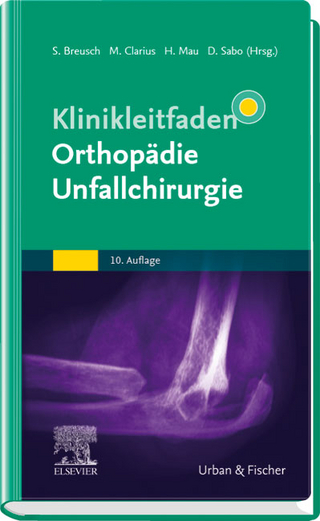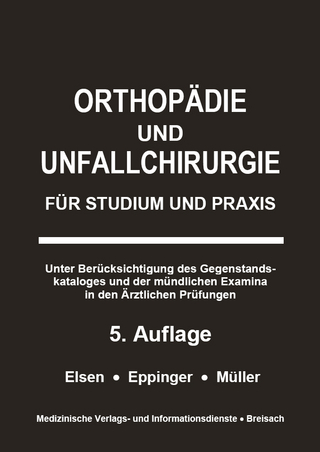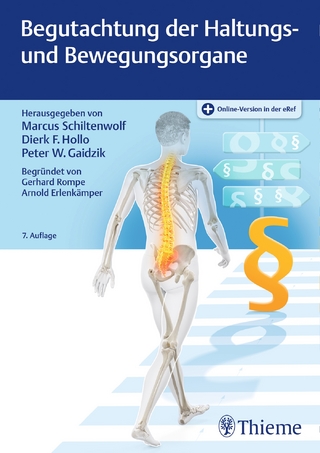
Forensic Anthropology
Academic Press Inc (Verlag)
978-0-12-815734-3 (ISBN)
Forensic Anthropology: Current Methods and Practice, 2nd edition approaches forensic anthropology using current practices and case studies drawn from the varied experiences, backgrounds, and practices of working forensic anthropologists. This text guides the reader through all aspects of human remains recovery and forensic anthropological analysis. It presents principles at a level that is appropriate for those new to the field, while at the same time incorporating evolutionary, biomechanical, and other theoretical foundations for the features and phenomena encountered in forensic anthropological casework.
Attention is focused on the most recent and scientifically valid applications commonly employed by working forensic anthropologists. Readers will learn about innovative techniques in the discipline, and aspiring practitioners will be prepared by understanding the necessary background needed to work in the field today. Instructors and students will find Forensic Anthropology: Current Methods and Practice, 2nd edition comprehensive, practical, and relevant to the modern discipline of forensic anthropology.
Dr. Christensen received her BA in Anthropology at the University of Washington in Seattle, WA (1997), and her MA and PhD in Anthropology at the University of Tennessee in Knoxville, TN (2000 and 2003). Since 2004, she has worked for the Federal Bureau of Investigation (FBI) Laboratory in Quantico, Virginia. She was board certified by the American Board of Forensic Anthropology in 2012 and is also an Adjunct Professor in the Forensic Science Program at George Mason University. Angi is a co-author of the award-winning textbook Forensic Anthropology: Current Methods and Practice, as well as a co-founder and Editor of the journal Forensic Anthropology. Her research interests include methods of personal identification, trauma analysis, elemental analysis, and skeletal imaging. She has published articles in Journal of Forensic Sciences, American Journal of Physical Anthropology, Journal of Forensic Radiology and Imaging, Forensic Science International, Journal of Forensic Identification, Forensic Anthropology, Forensic Science Medicine & Pathology, and Journal of Anatomy. Dr. Passalacqua received his Ph.D. in Anthropology from Michigan State University in 2012 and was certified by the American Board of Forensic Anthropology in 2016. Dr. Passalacqua is an Assistant Professor and the Forensic Anthropology Program Coordinator at Western Carolina University. Prior to arriving at WCU, he worked as a deploying forensic anthropologist with the Defense POW/MIA Accounting Agency – Laboratory in Oahu, Hawaii. Dr. Passalacqua is a co-founder and a current co-editor of the journal Forensic Anthropology. He is also currently a board member of the American Board of Forensic Anthropology, the chair of the Anthropology Consensus Body of the Academy Standards Board, and a member of the Anthropology sub-committee of the Organization of Scientific Area Committees. Dr. Passalacqua co-authored the award-winning textbook: Forensic anthropology: Current methods and practice, as well as the books: Ethics and professionalism in forensic anthropology, and A laboratory manual for forensic anthropology. Dr. Passalacqua also has numerous publications in such journals as: Forensic Anthropology, The American Journal of Physical Anthropology, The International Journal of Osteoarchaeology, and The Journal of Forensic Sciences, as well as chapters in such books as: Skeletal trauma analysis: Case studies in context, The analysis of burned human remains, Age estimation of the human skeleton, and A companion to forensic anthropology. Eric J. Bartelink is a Full Professor in the Department of Anthropology and co-Director of the Human Identification Laboratory at California State University, Chico. He received his BS in Anthropology at Central Michigan University (1995), his MA in Anthropology at California State University, Chico (2001), and his PhD in Anthropology at Texas A&M University (2006). He became the 89th Diplomate of the American Board of Forensic Anthropology in 2012. Eric’s interests are in forensic anthropology and bioarchaeology, and he has conducted research focused on skeletal trauma, taphonomy, paleopathology, and stable isotope analysis. He has conducted an extensive research program focused on central California bioarchaeology, and also conducted work in American Samoa. In 2000, he assisted with the excavation of mass graves in Bosnia-Herzegovina through the United Nations International Criminal Tribunal for the Former Yugoslavia, and also assisted in the identification of victims from the World Trade Center 9/11 disaster in 2002 and 2003. He has published articles in Journal of Forensic Sciences, American Journal of Physical Anthropology, Journal of Archaeological Science, International Journal of Osteoarchaeology, Journal of Archaeological Method and Theory, Archaeometry, and California Archaeology. Eric teaches courses in introductory physical anthropology, human osteology, forensic anthropology, bioarchaeology, forensic science, and statistics. He is Fellow of the American Academy of Forensic Sciences, and a member of the American Association of Physical Anthropologists, Society of American Archaeology, Paleopathology Association, and the Society for California Archaeology. He is a current board member of the American Academy of Forensic Sciences and a member of the Anthropology Sub-Committee of the Organization of Scientific Area Committees.
1. Introduction to forensic anthropology 2. Human osteology and odontology 3. Skeletal examination and documentation methods 4. Medicolegal significance 5. Forensic taphonomy 6. Forensic archaeology and scene processing methods 7. Processing, resolving commingling, and preserving remains 8. Sex estimation 9. Ancestry estimation 10. Age estimation 11. Stature estimation and other skeletal metrics 12. Individual skeletal variation 13. Analysis of skeletal trauma 14. Personal identification 15. Forensic anthropology in humanitarian and human rights investigations
| Erscheinungsdatum | 27.09.2019 |
|---|---|
| Verlagsort | San Diego |
| Sprache | englisch |
| Maße | 191 x 235 mm |
| Gewicht | 1200 g |
| Themenwelt | Medizinische Fachgebiete ► Chirurgie ► Unfallchirurgie / Orthopädie |
| Recht / Steuern ► Strafrecht ► Kriminologie | |
| ISBN-10 | 0-12-815734-8 / 0128157348 |
| ISBN-13 | 978-0-12-815734-3 / 9780128157343 |
| Zustand | Neuware |
| Informationen gemäß Produktsicherheitsverordnung (GPSR) | |
| Haben Sie eine Frage zum Produkt? |
aus dem Bereich


